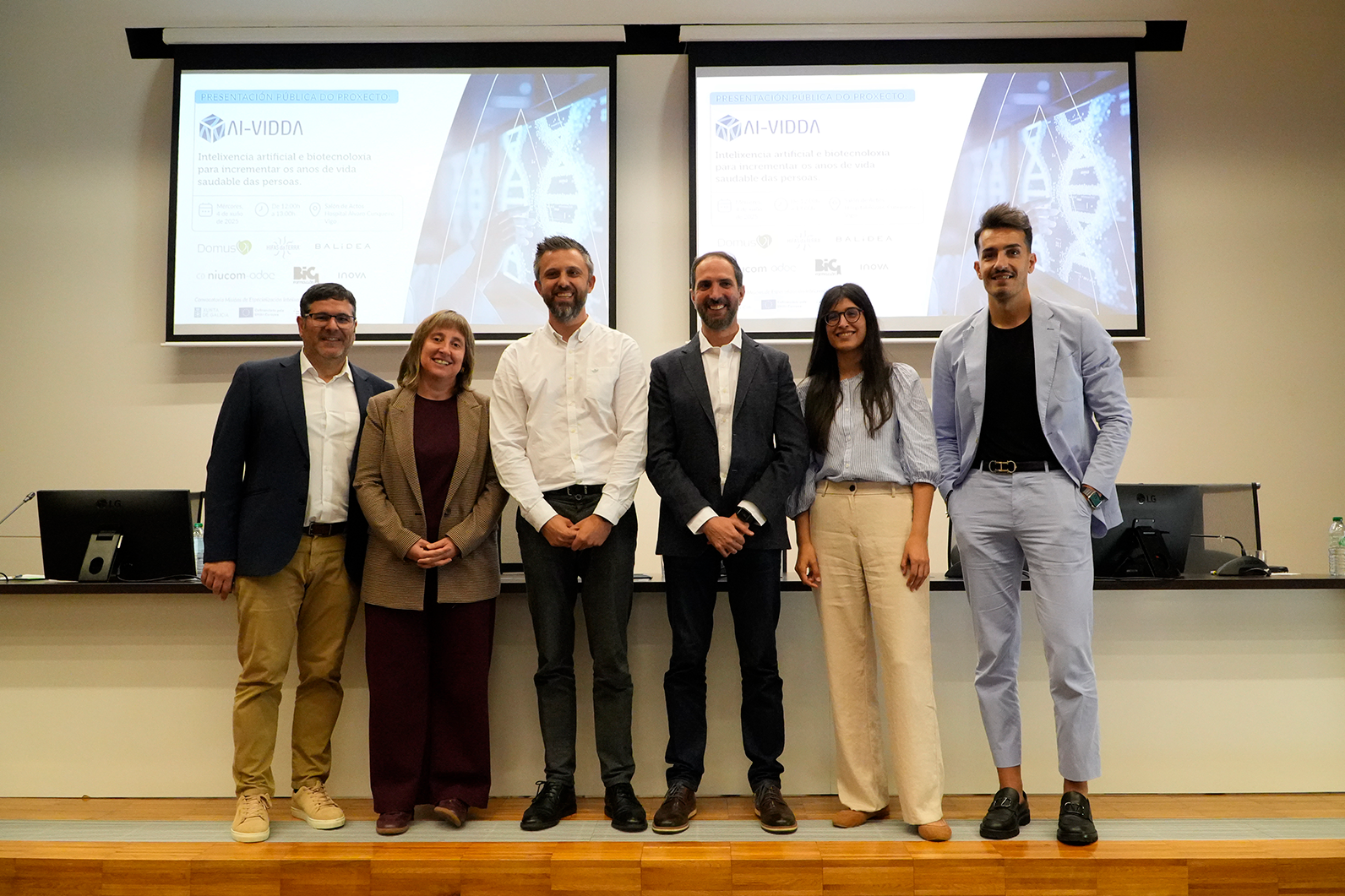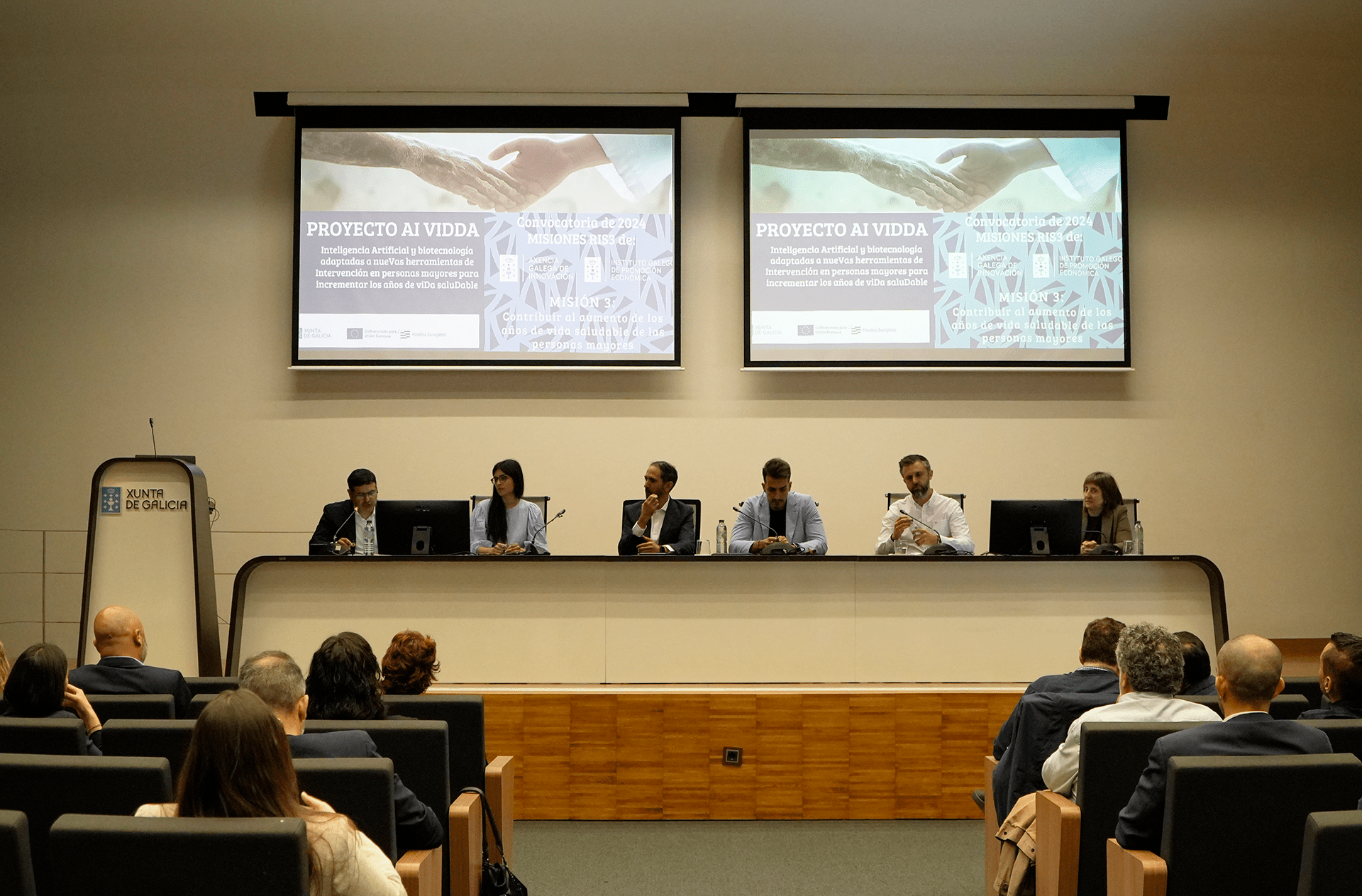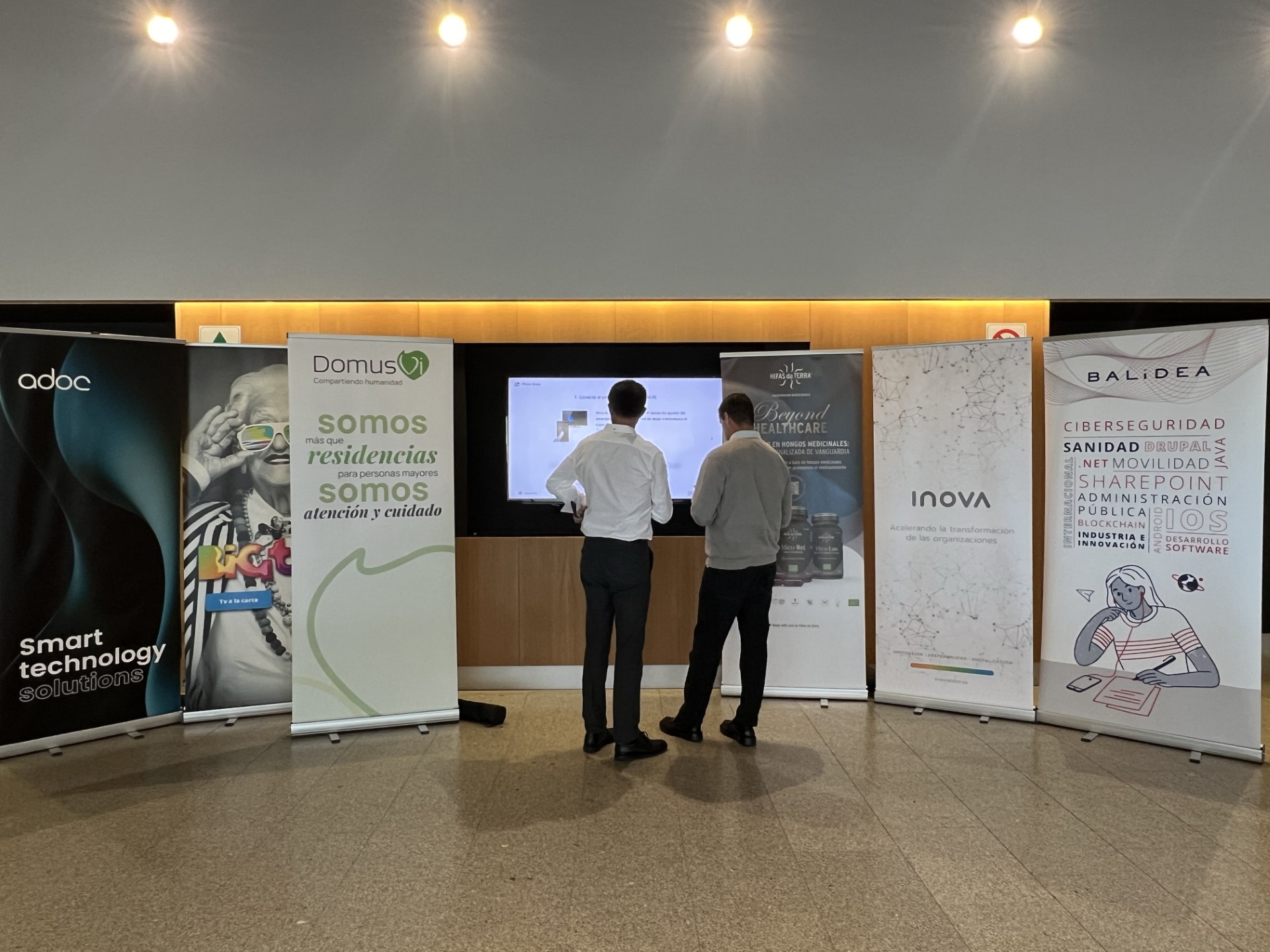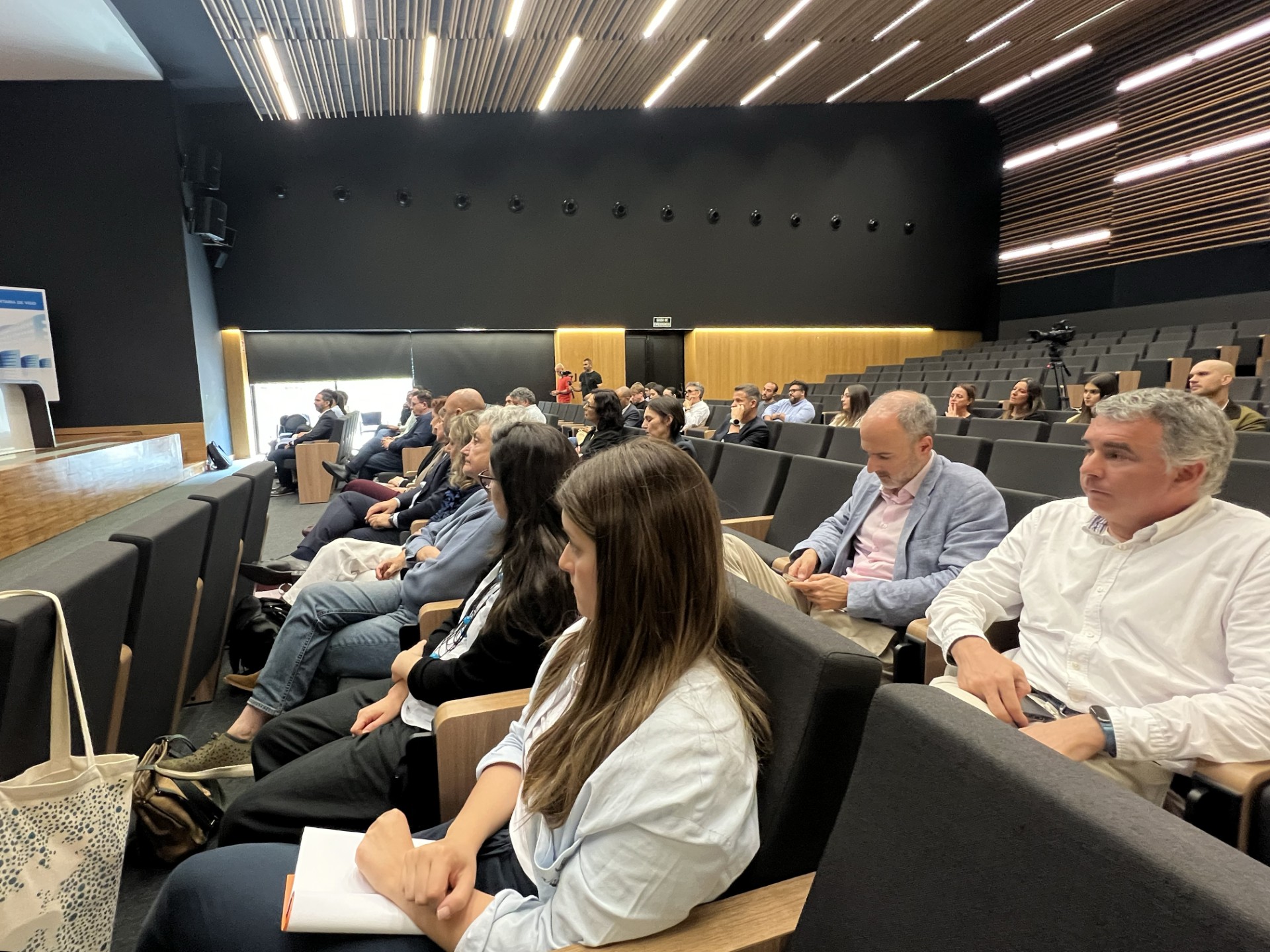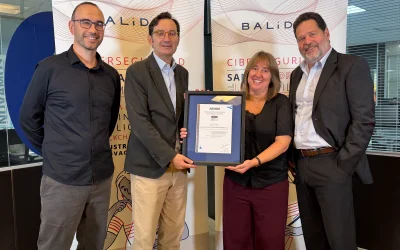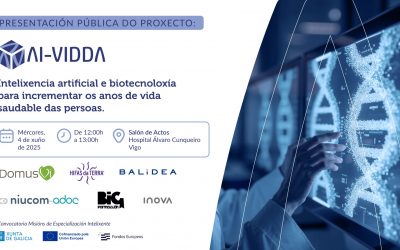The Álvaro Cunqueiro Hospital in Vigo hosted the official launch of AI-VIDDA, an applied research project initiated by six Galician companies that aims to enhance the quality of life of older people through technology and biotechnology.
The consortium comprises the following entities: DomusVi, Balidea, ADOC, BiG Formación, Inova and Hifas da Terra. Each entity brings experience in areas such as social care, healthcare, artificial intelligence, nutrition, device manufacturing and data analysis.
AI-VIDDA is financed by the Xunta de Galicia and European funds through the Feder Galicia 2021-2027 operational programme. It is part of Galicia's Smart Specialisation Missions and is a bold, strategic project that addresses the needs of an ageing population.
On Tuesday, the Álvaro Cunqueiro Hospital in Vigo hosted the official launch of the AI-VIDDA project, a collaborative research initiative involving six Galician companies. The project's overarching goal is to develop technological and biotechnological solutions that enhance the quality of life for the elderly, focusing particularly on extending autonomy and promoting healthy ageing.
The AI-VIDDA consortium comprises DomusVi (the project leader), Balidea, ADOC, BiG Formación, Inova and Hifas da Terra. These companies each bring experience in areas such as social and healthcare, artificial intelligence, nutrition, device manufacturing, data analysis and digital transformation. AI-VIDDA forms part of the Smart Specialisation Missions of Galicia and is financed by the Xunta de Galicia and European funds via the Feder Galicia 2021-2027 operational programme.
During the event, the importance of creating an economic and social ecosystem that responds to the needs of the elderly population was emphasised. It was emphasised that many areas of Galicia, which have a particularly large elderly population, still lack resources. AI-VIDDA is an initiative that seeks to provide solutions enabling older people to live more comfortably in their own homes and communities. The commitment of the participating companies was also recognised, in appreciation of both their involvement and their courage in taking on such a large-scale project.
AI-VIDDA researches new technological solutions in areas such as artificial intelligence, nutrition, socialisation and physical exercise. The aim is to design products and services that will help the elderly to live independently for longer and enjoy a healthier life.
As the driving force behind the consortium, DomusVi stressed the importance of technology serving person-centred care. 'At DomusVi, we see artificial intelligence as a strategic ally in transforming the care model. It's not just about incorporating technology; it's about using it to promote the maximum well-being and quality of life of dependent people through person-centred care' , explained Roberto González Novas, Head of Strategic Innovation at DomusVi and Principal Investigator at AI-VIDDA. This commitment to artificial intelligence is part of DomusVi's global strategy to promote innovative, person-focused solutions. The company believes that any technological solution must positively impact the care and quality of life of the elderly. Therefore, DomusVi promotes the development of digital tools that improve services and optimize processes without forgetting that people come first," says González Novas.
In the words of María del Carmen López Pérez, Head of Research, Development and Innovation, Balidea is ‘positioned as a benchmark provider in artificial intelligence agents and digital health transformation’. These are advanced, multilingual agents that specialize in social and healthcare contexts. Through the AI-VIDDA project, in collaboration with the Multimedia Technologies Research Group (GTM-atlanTTic) at the University of Vigo, Balidea aims to facilitate user interaction with the digital world through voice technology. 'Balidea will develop multilingual conversational agents that specialize in social and healthcare contexts. These agents will have applications that assess quality of life, provide companionship and monitoring for the elderly, and predict care needs based on voice interaction analysis'.
Inova is leading the development of an intelligent model of quality of life and healthy longevity for the elderly, which is being pursued by AI-VIDDA. According to Laura Pereira, head of Industry 4.0 and IT at the company, this model is 'built on objective indicators and backed by scientific evidence'. The challenge is ambitious: to transform this scientific and technical framework into an accessible technological tool that offers personalised recommendations to improve the well-being of the elderly, thanks to AI. 'At Inova, we aim to convert data into valuable insights that can genuinely impact people's lives. It is part of who we are. With AI-VIDDA, we are taking it a step further. We are providing scientific rigour, of course, but our goal is for this data to have a more human impact and to become an accessible, understandable tool oriented towards people's wellbeing', concludes Pereira.
ADOC is a company dedicated to designing, developing, manufacturing and marketing devices. It is currently working on solutions ranging from routers to mobile terminals, touchscreens and tablets that are adapted to the needs of an ageing population and the social and healthcare environment.
Similarly, AI VIDDA ONE, developed by BiG Formación, is an innovative technological solution designed to promote personal autonomy, health, and well-being. Described as the first service to integrate a digital content platform and an app accessible from any mobile device, it offers a personalised and interactive experience.
This tool addresses the sector's key challenges, such as an ageing population, a shortage of human resources, the need for person-centred care, combatting unwanted loneliness, and providing cognitive stimulation through interactive videos. AI VIDDA ONE also stands out for its ability to optimise resources and reduce costs, making it a key solution in the current economic climate.
Hifas da Terra focuses its participation in AI-VIDDA on the impact of nutrition on the quality of life of the elderly, in particular on the prevention of cognitive impairment associated with neurodegenerative diseases. Adopting a biotechnology-based approach, the company is researching the active compounds present in medicinal mushroom strains in collaboration with consortium entities and technology centres. The project focuses particularly on understanding the mechanisms of action of these compounds in in vitro models of Alzheimer's disease. The project also involves improving production processes, including installing a new 500 L bioreactor at its centre in Bora, Pontevedra, for producing nutritional supplements of fungal origin. Finally, in collaboration with Fundación Biomédica Galicia Sur, Hifas da Terra is conducting a clinical trial with patients exhibiting mild cognitive impairment, specifically in the early stages of Alzheimer's disease, with the aim of obtaining scientific evidence on the effects of extracts developed using proprietary technologies.
AI-VIDDA offers a genuine opportunity to transform how we care for, support and experience old age. With older people at its core, the project demonstrates the participating companies' commitment to responsible innovation and developing solutions that improve the health, autonomy and well-being of those who need it most.
